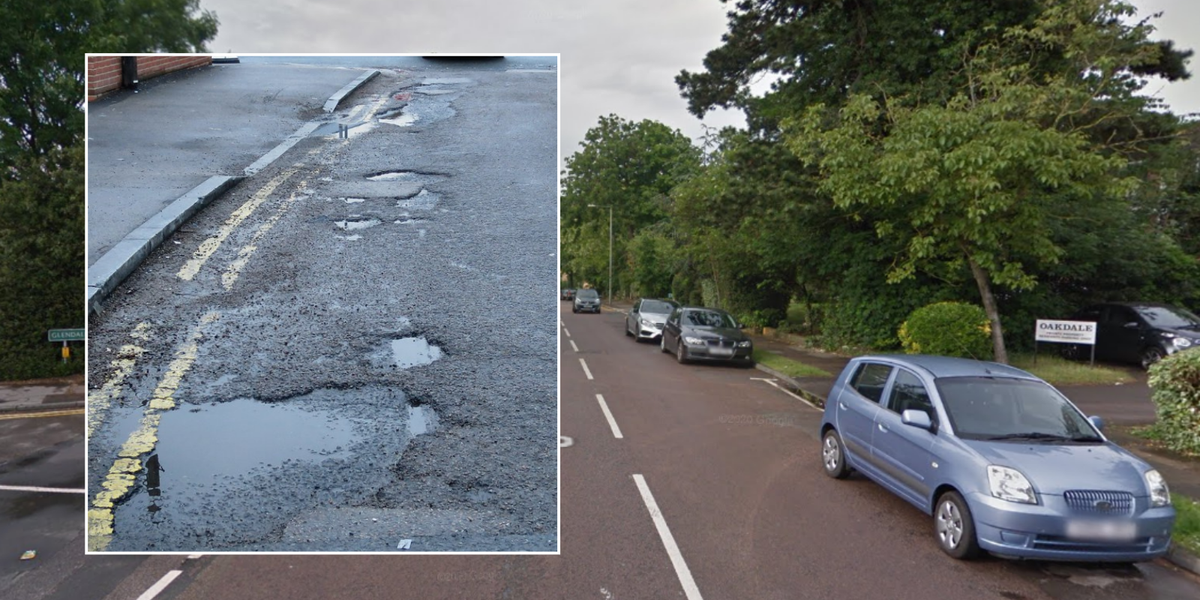The state pension is set to rise by just 15 per cent over the next five years – just half the increase that retirees have enjoyed over the past five years, figures hidden in the fine print of the Government’s official forecasts reveal.
Pensioners breathed a sigh of relief as Chancellor Rachel Reeves renewed her promise to maintain the state pensions triple lock until the end of this parliament when she delivered her first Budget last Wednesday.
This valuable guarantee ensures that payouts rise by the highest of inflation, wage growth or 2.5 per cent. It is crucial for ensuring that pensioner incomes don’t fall behind workers or the rising cost of living each year.
It means more than 12 million pensioners are set for a 4.1 per cent boost to the state pension next April, equal to an extra £470 a year for those on the new state pension, as wage growth figures have outstripped inflation at 1.7 per cent over the past year. The full state pension is on track to rise to £11,973.
Pensioners breathed a sigh of relief when Chancellor Rachel Reeves renewed her promise to maintain the state pensions triple lock until the end of this parliament
But pensioners are in for a run of lean years of growth as a string of record increases in the state pension has come to an end, forecasts from the Office for Budget Responsibility show.
Between now and 2029, the state pension should increase by 15 per cent to £254.42 a week – or £13,230 a year.
This is bad news for those who rely on the state pension, which notoriously pays the least of any developed country, according to leading economic think-tank the Organisation for Economic Cooperation and Development (OECD).
Over the past two years, the new state pension has increased by a staggering 19.5 per cent and since 2019 it has risen by 31.2 per cent. The weekly payments of the new state pension have increased from £168.60 a week in 2019 to £221.20 this year – paying an extra £2,735 a year. Over a 20-year retirement, this adds up to an additional £54,700.
Retirees have received bumper boosts to the state pension in the past two years as payments increased by 8.5 per cent this year and 10.1 per cent in 2023.
Pensioners have been protected from the worst of rampant inflation during the cost-of-living crisis and received the delayed increase in wages in a double uplift.
But those hoping for similar increases over the coming years are likely to be disappointed.
The state pension is due to increase by just 6.67 per cent over the next two years.
Inflation, which has already fallen to 1.7 per cent in the year to September, is expected to remain below 2.6 per cent between now and 2029.
Similarly, real wage growth is forecast to fall to 1.2 per cent before picking back up to 2.2 per cent for the following three years, according to the OBR forecasts used by the Government.
This means, the state pension is expected to rise by 2.6 per cent in April 2026 and by the minimum guarantee of 2.5 per cent for the following three years.
Next April’s increase has already been confirmed at 4.1 per cent – reflecting annual earnings growth including bonuses between May and July this year.
Pensioners on the full new state pension, who have reached state pension age since 2016, will see their weekly income rise by £9.05 to £230.25 – or £11,973 a year.
For older pensioners who receive the full basic state pension, the increase will translate to an extra £6.80, to £176.30 a week – or £9,167.60 a year. Not only will pensioners receive lower state pension rises, hundreds of thousands will also find themselves faced with a tax bill on their incomes for the first time.
This means that part of the annual increases will be clawed back by the Treasury in the form of taxes.

Raising the state pension by just one percentage point adds another £900 million to the pensions bill according to former pensions minister Sir Steve Webb
As early as 2027, the state pension will exceed the income tax threshold, which has been frozen at £12,570 until 2028.
That will mean that anyone who receives the full state pension will pay tax on anything they receive in excess of that figure – even if they have no other income.
Next year’s £470 boost alone will drag hundreds of thousands of pensioners into paying tax for the first time, experts warn.
The Chancellor confirmed on Wednesday that the Government would maintain the triple lock for the duration of this parliament.
But it is increasingly expensive to maintain as the pensioner population continues to rise.
Raising the state pension by just one percentage point adds another £900 million to the pensions bill according to former pensions minister Sir Steve Webb, who is now a partner at consultants LCP.
Next year’s increase will add £1.9billion to the Treasury’s annual pensions bill, official figures show.
The Isle of Man is considering axing the beloved triple lock amid fears the island’s state pension fund will otherwise soon run out.
A report on the sustainability of the Isle of Man’s National Insurance Fund has laid out options to replace it.
Actuarial forecasts in 2022 warned the fund could be exhausted by 2047-48, in part due to the number of pensioners claiming state pensions for longer.
Treasury minister Alex Allinson has since said that there needs to be a ‘national conversation’ about the issue. Any change would only affect those who reached state pension age after April 5, 2019.
Some links in this article may be affiliate links. If you click on them we may earn a small commission. That helps us fund This Is Money, and keep it free to use. We do not write articles to promote products. We do not allow any commercial relationship to affect our editorial independence.











